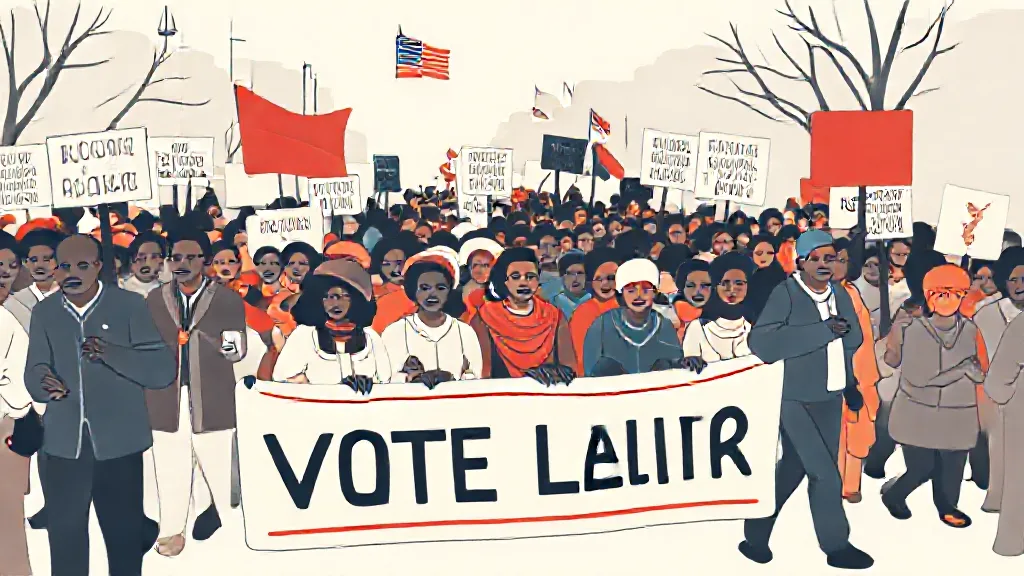The Voting Rights Act of 1965 stands as a monumental piece of legislation in the history of the United States, aimed at eliminating racial discrimination in voting. This act was critical not only for its immediate impact on voter registration among African Americans but also for its long-lasting effects on American democracy. Understanding why this act was so vital requires a deep dive into the historical context leading up to its passage, the provisions it contained, and the implications it has had on the voting landscape in the U.
S.
Historical Context of Racial Discrimination
Before the Voting Rights Act, many African Americans faced systemic barriers when attempting to exercise their right to vote. Jim Crow laws, which enforced racial segregation in the South, included numerous discriminatory practices such as literacy tests, poll taxes, and understanding clauses.
These measures were designed to disenfranchise Black voters and maintain white supremacy in political power. The Civil Rights Movement of the 1960s, marked by protests and activism, brought national attention to these injustices, culminating in a push for comprehensive voting rights reform.
The Selma to Montgomery Marches
The Selma to Montgomery marches in early 1965 were pivotal events that highlighted the struggle for voting rights.
Activists, including Martin Luther King Jr., organized these marches to protest the ongoing disenfranchisement of Black voters in Alabama. The violent response from law enforcement during the first march, known as "Bloody Sunday," shocked the nation and galvanized public support for voting rights legislation.
This grassroots activism was instrumental in creating the political pressure necessary for the passage of the Voting Rights Act.
Key Provisions of the Voting Rights Act
The Voting Rights Act of 1965 included several key provisions aimed at dismantling barriers to voting. One of the most significant was the prohibition of literacy tests and similar discriminatory practices.
Additionally, the Act provided for federal oversight of voter registration in areas with a history of discrimination, ensuring that African Americans could register and vote without facing intimidation or harassment. These measures were crucial in shifting the balance of power and promoting greater electoral participation among marginalized communities.
Immediate Impact on Voter Registration
Following the enactment of the Voting Rights Act, there was a dramatic increase in voter registration among African Americans.
In many Southern states, the percentage of Black registered voters surged, reflecting the Act's immediate effectiveness in combating disenfranchisement. For example, in Mississippi, the percentage of registered Black voters rose from less than 7% in 1964 to over 60% by 1967. This newfound political power allowed African Americans to influence elections and advocate for policies that addressed their needs and concerns.
Long-Term Implications for American Democracy
The Voting Rights Act of 1965 had far-reaching implications for American democracy. By empowering African Americans and other marginalized groups, the Act helped to foster a more inclusive political landscape. It laid the groundwork for subsequent legislation aimed at protecting voting rights, such as the National Voter Registration Act of 1993 and the Help America Vote Act of 2002.
Moreover, the Act served as a model for other movements around the world, inspiring global efforts to secure voting rights and democratic participation.
Challenges and Ongoing Struggles
Despite its successes, the Voting Rights Act has faced numerous challenges over the years. In 2013, the Supreme Court's decision in Shelby County v.
Holder invalidated key provisions of the Act, effectively nullifying the federal oversight of voter registration in jurisdictions with a history of discrimination. This ruling raised concerns about the resurgence of voter suppression tactics and highlighted the ongoing struggle for voting rights in America. Activists continue to advocate for the restoration and strengthening of the Voting Rights Act to ensure that all citizens can exercise their right to vote.
Conclusion: The Legacy of the Voting Rights Act
The Voting Rights Act of 1965 remains a cornerstone of American democracy, symbolizing the ongoing fight for civil rights and equality. Its passage marked a significant victory in the struggle against racial discrimination and has had lasting effects on the political landscape of the United States. As we reflect on the importance of this legislation, it is crucial to recognize the continued need for vigilance in protecting voting rights for all citizens, ensuring that the hard-won gains of the Civil Rights Movement are not eroded.
Image Prompt
Create an image depicting the historic Selma to Montgomery march, showcasing diverse groups of people united in their fight for voting rights, with banners and signs advocating for equality and justice.
